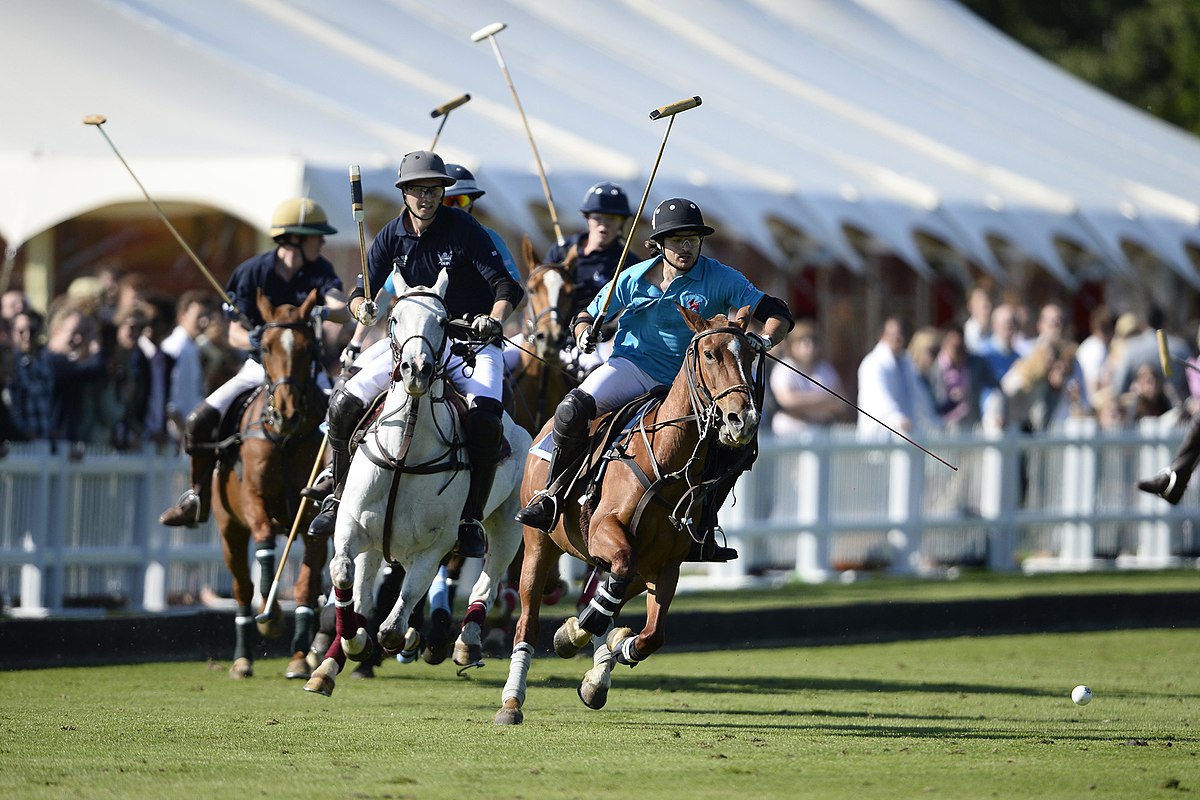by Ahmed Yousef,
Polo is known as one of the oldest and most exclusive sports in the world. It is distinguished by its unique interaction between the rider and the horse, making it a sport that requires a high level of skill and training, surrounded by an aura of luxury and elegance that has made it closely associated with the elite and upper classes. In this article, we will explore the history of polo, its growth in the Arab world, and its future in the region.
History of Polo
Polo is an ancient sport that dates back more than 2,500 years and is believed to have originated in Persia (modern-day Iran). Initially, it was played as a way to train cavalry and warriors, and later evolved into a sport played by kings and the elite. Polo spread to India during the medieval period, where it was adopted by the British during their colonial rule, and subsequently became an official sport played around the world.
In the 19th century, polo made its way to the West and became popular among the aristocracy in England, then spread across the rest of Europe and the Americas. It has always been considered a luxurious sport, practiced only by the elite, due to the high costs associated with horse breeding and training, as well as the need for large spaces to play.
Polo in the Arab World
While polo has a long and varied history, the Arab world has played a pivotal role in preserving and developing this sport. The United Arab Emirates is one of the leading countries in promoting polo in the region, with Dubai and Abu Dhabi becoming major hubs for the sport, offering world-class infrastructure and fields.
Dubai hosts several international tournaments that attract teams and players from all over the world, making the region an international center for polo. Among the most notable clubs in the UAE is the Dubai Polo & Equestrian Club, which serves as a venue for major events and matches, enhancing polo’s status as an elite sport in the region.
Saudi Arabia has also started to pay increasing attention to polo, hosting several international events in recent years that have helped raise awareness of the game and encouraged young people to participate. Egypt, too, cannot be overlooked, as it was one of the first Arab countries to practice polo, thanks to its long history of horse breeding and passion for equestrianism.
Polo as an Elite Lifestyle
Polo is not just a sport; it is a lifestyle for the elite. It embodies luxury and sophistication and is considered a symbol of high society and the upper class. Tournaments are usually held in elegant locations and are often accompanied by social events and lavish parties, attracting prominent figures, businesspeople, and celebrities.
This distinctive atmosphere creates a unique environment where polo enthusiasts can network, exchange ideas, and conduct business deals. This is one of the reasons why polo is so popular among the elite—it combines sport, luxury, and social interaction.
The Future of Polo in the Arab World
The future of polo in the Arab world looks promising, thanks to significant investments in infrastructure and efforts to promote the sport among young people. Many Arab countries are working to make polo more inclusive by opening clubs to the public and encouraging community participation. Hosting international tournaments also contributes to enhancing the region’s image as a global sports destination.
Moreover, the increasing interest in equestrian sports in general in the Arab world, and the trend towards celebrating heritage and traditions, strengthens polo’s position and makes it a part of the region’s cultural identity. This trend is evident in major events like the equestrian festivals, which integrate both traditional and modern equestrian sports, including polo.
Challenges and Opportunities
Despite all the positive developments, polo faces several challenges in the Arab world. Among the most significant challenges are the high costs associated with practicing the sport, whether in terms of horse breeding and training or providing the necessary facilities and infrastructure. Additionally, there is limited awareness of the game among the general public, as it is still considered an exclusive sport practiced in limited circles.
However, there are great opportunities to expand the sport and increase its popularity. Educational initiatives targeting young people and children could help make polo more popular, as well as programs that support women’s participation in the sport, which would increase player diversity and help spread the game.
Polo has always been and continues to be a symbol of luxury and exclusivity—a sport that combines high skill, elegance, and a rich history. In the Arab world, the future of this sport looks bright, thanks to the growing interest from governments, clubs, and the community. With the move towards enhancing community participation and providing greater accessibility, polo could transform from an exclusive sport to one that enriches the sporting and cultural landscape of the region.








